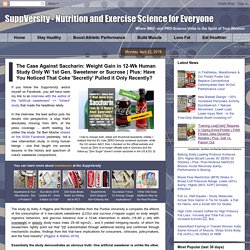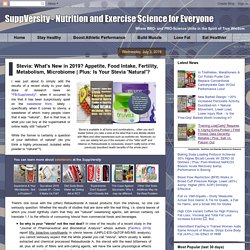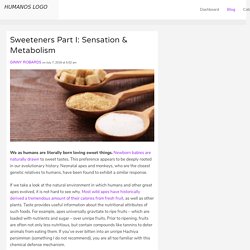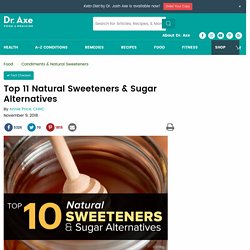

Artificial Sweeteners. Plus: Have You Noticed That Coke 'Secretly' Pulled it Only Recently? - SuppVersity: Nutrition and Exercise Science for Everyone. If you follow the SuppVersity and/or myself on Facebook, you will have seen my link to an interview with the author of the "artificial sweeteners" <> "stroke" study that made the headlines lately.

In the interview, the lead author puts his results into perspective; a step that's absolutely missing from 99% of the press coverage ... worth reading, but unlike the study Tal Ben Moshe shared on the ISSN Facebook yesterday, not a new intervention study in living human beings - one that taught me several lessons in the history and spectrum of coke's sweetener compositions. You can learn more about sweeteners at the SuppVersity Aspartame & Your Microbiome - Not a Problem? Sucralose 2018 Update #1 - Does it Make Us Fat?
Diet Soda Beats Water as Dieting Aid in RCT Experiments Don't Support AS<>Obesity link Sucralose Tricks 'Ur Energy Gauge - Implications? Other Diet Soda Additives May be the Real Problem Essentially the study demonstrates an obvious truth: One artificial sweetener is unlike the other. Plus: Is Your Stevia 'Natural'? - SuppVersity: Nutrition and Exercise Science for Everyone. I was just about to simply add the results of a recent study to your daily dose of research news on "FB/SuppVersity", when it occurred to me that it has been suspiciously quiet on the sweetener front, lately - specifically when it comes to stevia, a sweetener of which many people claim that it was "natural"...

But is that true, is what you can buy at the supermarket or online really still "natural"? While the former is certainly a question of your definition of natural" (do you think a highly processed, isolated white powder is "natural"?). You can learn more about sweeteners at the SuppVersity Aspartame & Your Microbiome - Not a Problem?
Sucralose 2018 Update #1 - Does it Make Us Fat? Diet Soda Beats Water as Dieting Aid in RCT Experiments Don't Support AS<>Obesity link The Case Against Saccharin: Why it may be different. Other Diet Soda Additives May be the Real Problem ...unless you're stupid enough to believe that everything that marketing people label "natural" is healthy. Here’s the Research on Sugar and Health. The Sugar Manifesto. Six More Reasons To Sack The Sugar. In our new book The Micronutrient Miracle we reveal sugar’s numerous micronutrient-robbing traits that can eventually lead to obesity.

(Believe it or not, in the U.S. today more high fructose corn syrup (HFCS) is consumed than sugar!) As if micronutrient depletion and overeating isn’t enough, here are six more reasons to eliminate sugar and HFCS from your diet. It is most likely genetically modified (GMO). When you think of sugar, what comes to mind? Do you imagine a sugarcane plantation? Whoa! In our upcoming book, The Micronutrient Miracle, we sack the sugar and teach you how a micronutrient rich (sugar free) diet can change your life in just days!
Sweeteners Part I: Sensation & Metabolism. On July 7, 2016 at 5:02 am We as humans are literally born loving sweet things.

Newborn babies are naturally drawn to sweet tastes. This preference appears to be deeply rooted in our evolutionary history. Neonatal apes and monkeys, who are the closest genetic relatives to humans, have been found to exhibit a similar response. If we take a look at the natural environment in which humans and other great apes evolved, it is not hard to see why. In general, the presence of intense sweetness in the foods that we encounter is suggestive of energy density, and a relative lack of toxic compounds.
(and calories relative to volume) than kale, and are indeed sweeter and more rewarding to most people. Food processing, production, and other aspects of the modern environment have dramatically altered our feeding patterns. In this article series, we will examine some of the evidence surrounding these sugar substitutes, and try to determine the safest and most effective way to use them. References.
Stevia. Top 10 Natural Sweeteners & Sugar Alternatives. An alarming fact: The average American is consuming 19.5 teaspoons of sugar every day and around 66 pounds of added sugar each year!

(1) And while the consumption of refined sugar is on the rise, so are artificial sweeteners. Artificial sweeteners like aspartame, sucralose, ACE K and saccharin have been debated for years in regard to their damaging side effects. While all of these sweeteners are technically “safe,” according to the FDA, they are coming under increased scrutiny because of their side effects. Side effects from artificial sweeteners range from headaches and migraines to shrunken thymus glands, impairment of liver and kidney function and mood disorders.
Refined sugars aren’t healthy either. Over the last few years, corn growers and affiliated associations have pushed high fructose corn syrup (HFCS) as a natural sweetener. So what is a good natural sweetener? 1. Raw honey is a true superfood and one of the best natural sweeteners. How to use raw honey: 2. How to use stevia: 3.